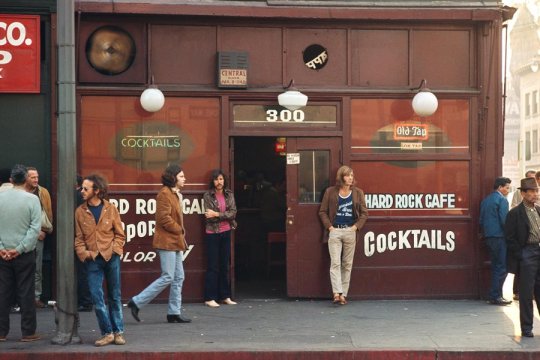Text
Trouble Every Day (Claire Denis, 2001)
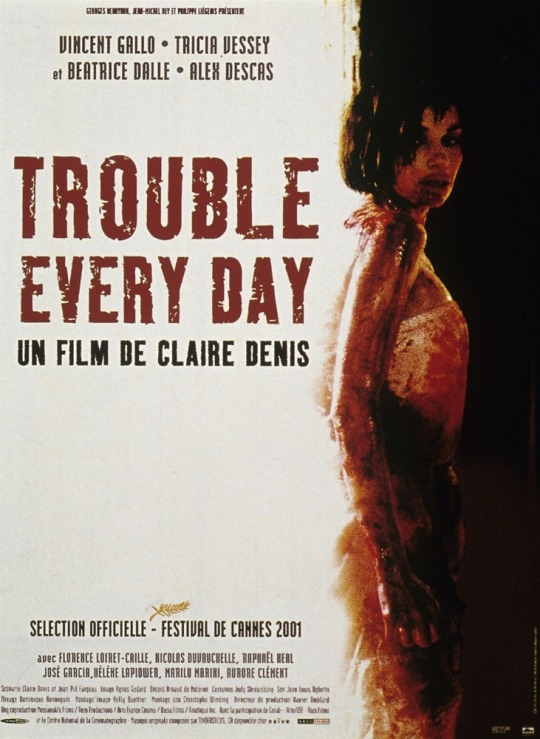
Wings Of Desire (Wim Wenders, 1987)
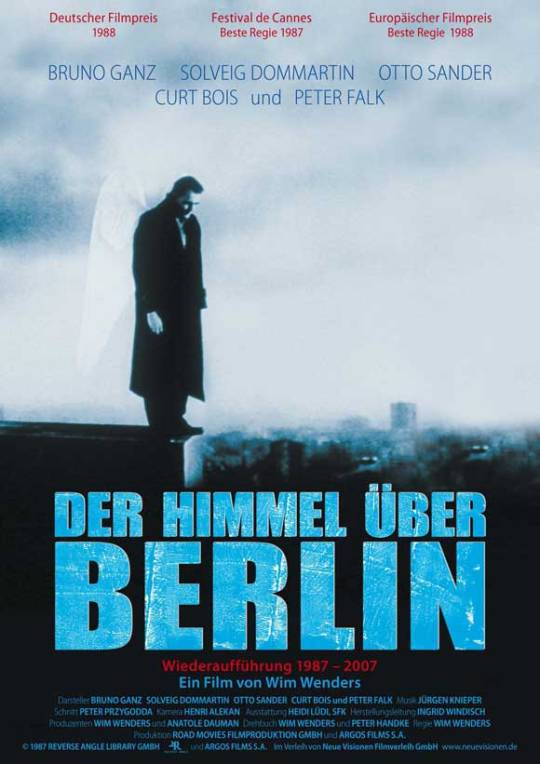
Sympathy For The Devil (Jean-Luc Godard, 1968)
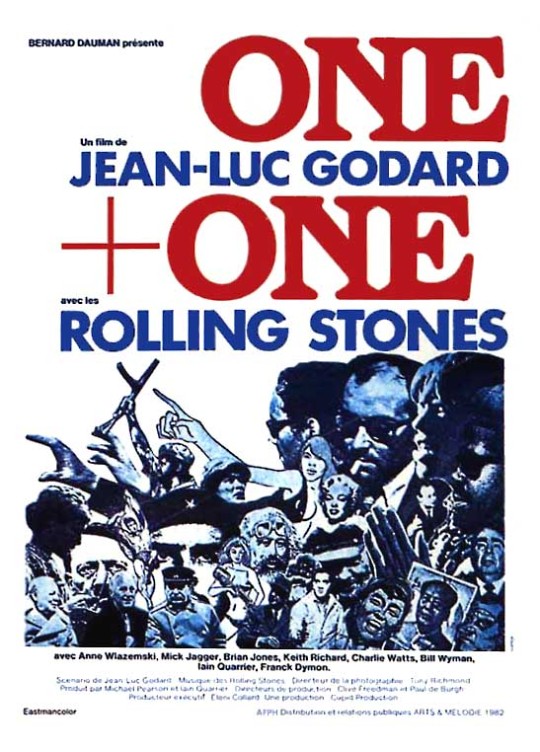
Dekalog (Krzysztof Kieslowski, 1989)
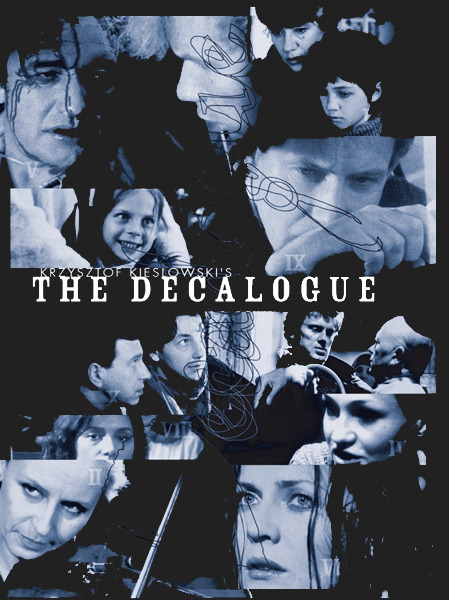
Russian Ark (Aleksandr Sokurov, 2002)
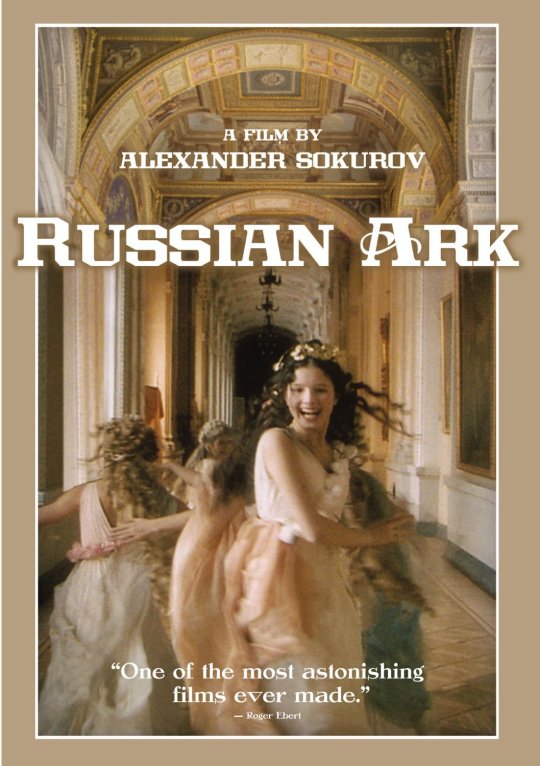
Tale Of Tales (Yuriy Norshteyn, 1979)
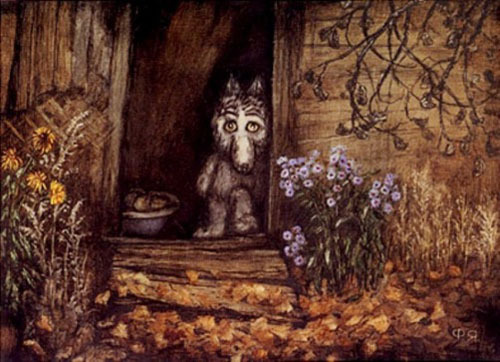
1 note
·
View note
Text
True Dylan
A one-act play, as it really happened one afternoon in California
By SAM SHEPARD
SCENE: IN THE DARK, a Jimmy Yancey piano solo is heard very softly, floating in the background. Soft, blue, foggy light creeps in, extreme upstage, revealing a large, weathered brick patio bordered by shaggy grass upstage and opening out to a distant view of the Pacific Ocean. The distant rhythmic splashing of waves is heard underneath the piano music and continues throughout the play, always in the background. The only set piece onstage is a round redwood table with a big yellow umbrella stuck in the middle of it and two redwood benches set across from each other at the table. The table and benches are set down left (from the actors’ point of view).
As the light keeps rising, a short, skinny guy named Bob is seen center stage dressed in nothing but a pair of light-green boxer shorts. His arms are clasped across his chest with each hand gripping the opposite shoulder, as though warding off the cold. He turns in a slow circle to his right and then repeats the circle to the left, looking out to the ocean as his gaze passes it. He stops, facing audience, covers his face with both hands, then rubs his eyes and draws his hands slowly down his cheeks to his chin. His mouth drops open and his head slowly drops back on his shoulders to stare at the sky. He holds that position. Piano music stops abruptly. Sam, a tall, skinny guy dressed in jeans and a T-shirt, carrying a tape recorder, several notebooks, and a six-pack of beer, enters from right. He stops. Bob drops his hands and stares at Sam. Pause. Sound of distant waves continues.
SAM: Ready?
BOB: Yeah. I just gotta make a couple phone calls first.
[Bob moves toward stage right, then stops.]
BOB: Oh, you know where I just was?
SAM: Where?
BOB: Paso Robles. You know, on that highway where James Dean got killed?
SAM: Oh yeah?
BOB: I was there at the spot. On the spot. A windy kinda place.
SAM: They’ve got a statue or monument to him in that town, don’t they?
BOB: Yeah, but I was on the curve where he had the accident. Outsida town. And this place is incredible. I mean the place where he died is as powerful as the place he lived.
SAM: Nebraska?
BOB: Where’d he live?
SAM: He came from the farm, didn’t he? Somewhere.
BOB: Yeah, Iowa or Indiana. I forget. But this place up there has this kind of aura about it. It’s on this kind of broad expanse of land. It’s like that place made James Dean who he is. If he hadn’t’ve died there he wouldn’t’ve been James Dean.
SAM: Hm.
[Bob moves as though to exit stage right again, but stops again.]
BOB: You know what Elvis said? He said that if James Dean had sang he’d’ve been Ricky Nelson.
SAM: Is that right?
BOB: Yeah. [pause] You need anything?
SAM: Nope.
BOB: You brought some beer?
SAM: Yeah.
BOB: I just gotta make a couple phone calls.
SAM: Good.
[Bob exits stage right as Sam moves down left toward table. Just as Bob exits, the sound of screeching tires and a loud car crash comes from off right. Sam pays no attention, but goes about setting tape recorder, beer, and notebooks on table. Bob reenters from right but with no reaction to car-crash sounds.]
BOB: Who was playin’ that music before?
SAM: What music?
BOB: That piano music.
SAM: I dunno.
BOB: Hm.
SAM: “If James Dean sang he’d’ve been Ricky Nelson?’’ Elvis said that?
BOB: Yeah. Poor ol’ Ricky. I wish he was here with us today. I wonder if anyone ever told him, when he was alive, how great he was. I mean like the rock ’n’ roll critics.
SAM: You got me.
BOB: You know, Emilio Fernandez used to shoot the critics that didn’t like his movies. At parties.
[Bob exits stage right. Sam sits on bench facing stage right, pulls out a cassette tape and sticks it in recorder, punches a button, and the same Jimmy Yancey tune is heard coming from the machine itself. Only a snatch is heard before Bob’s voice comes from offstage right, speaking on the phone. As soon as Bob’s voice is heard, Sam shuts the recorder off and starts leafing through his notebooks, scribbling in them now and then.]
BOB’S VOICE: [off right] Maria? Listen, what’s that thing gonna be like tonight? [pause] Yeah. There gonna be a lotta people there? [pause] Well, that’s what I’m tryin’ to figure out. [pause] Yeah. I don’t know. How many people you think there’ll be? [pause] Okay, well look, I got somebody here so. [pause] Yeah, I know. Yeah, well, I seen their act before. Yeah, I seen it. I seen it in St. Louis. Yeah. [pause] I dunno—’59 or ’60, somethin’ like that. [laughs, pause] I was around. I been around a long time. I can’t count anymore. Okay, look, I’ll talk to you later and see what’s goin’ on. [pause] Okay. Bye.
[Bob hangs up offstage. Sam looks in that direction, then returns to his notebooks, cracks open a can of beer, and drinks.]
BOB’S VOICE: [off right] Sam, what’s this thing supposed to be about anyway?
SAM: I dunno.
BOB’S VOICE: [off] Are we supposed to have a theme?
SAM: I got a buncha questions here.
BOB’S VOICE: [off] You brought questions?
SAM: Yeah.
BOB’S VOICE: How many questions?
SAM: Couple.
BOB’S VOICE: What if I don’t have the answers?
SAM: Make it up.
BOB’S VOICE: Okay, so ask me a question.
SAM: [quickly putting a cassette in recorder] Okay, wait a second. I gotta see if this thing is working.
BOB’S VOICE: You got a tape?
SAM: [punching RECORD button] Yeah. Okay. All right. It’s rolling.
BOB’S VOICE: Ask me somethin’.
SAM: Right. [referring to notebooks] Let’s see—okay—let’s see now—okay—here we go—Do you have any ideas about angels? Do you ever think about angels?
BOB’S VOICE: That’s the first question?
SAM: You want me to start with something else?
BOB’S VOICE: [still off] No, that’s okay. Angels. Yeah, now, angels now—what is it? [pause] Oh—the pope says this about angels—he says they exist.
SAM: Yeah? The pope?
BOB’S VOICE: Yeah. And they’re spiritual beings. That’s what he says.
SAM: Do you believe it?
BOB’S VOICE: Yeah.
SAM: Have you had any direct experience with angels?
BOB’S VOICE: [off] Yeah. Yeah, I have. I just gotta make one more phone call, all right?
SAM: Yeah. [shuts tape off]
BOB’S VOICE: You need anything?
SAM: Naw, I’m fine.
[Sam drinks more beer, scribbles more notes. Pause. Bob’s voice is heard again offstage right on phone. Sound of waves continues.]
BOB’S VOICE: [off right] Maria? Hi, it’s me again. [pause, laughs] Yeah, I just like the sound of your voice. Listen, what’s the area code for Tulsa, do you know? [pause] Tulsa, yeah. [pause] All right. Good. [pause] Yeah, that’s okay. I don’t need it right away. [pause] Oh, ya did? [pause] Yeah? [pause] So, it’s just a few people then? What’s a few? [pause] That’s more than a few. [laughs] Yeah, but, that’s not what you’d call a few. [pause] Aw. I dunno. Look, I’ll just have to think about it—see how the day goes—then I’ll get back to you. [pause] Yeah, okay. Bye. [hangs up]
SAM: [after pause] You want me to come back? I could go out and come back if you want. Have some lunch.
BOB’S VOICE: [off] Naw, you’re here. Stay. I’m just gettin’ some clothes on. I’ll be right there. Ask me another question.
SAM: Oh, okay—[punching recorder on] uh—let’s see—[referring to notebooks] okay—What was the first music you can remember listening to? Way back.
BOB’S VOICE: [off] First music. First music?
SAM: Yeah.
BOB’S VOICE: [off] Live, ya mean? Live?
SAM: Yeah. Live.
BOB’S VOICE: [off] First music ever?
SAM: Yeah.
[pause]
BOB’S VOICE: [off] Polka music.
SAM: Really?
[Bob enters from right wearing a sleeveless T-shirt, black jeans, and motorcycle boots with brass buckles. He carries a beat-up old acoustic guitar strung around his neck with an old piece of rope. He continually fingers the neck of the guitar and keeps picking out little repetitive melody lines, short blues progressions, gospel chords—whatever comes into his mind. He keeps this up through all the dialogue, even when he’s talking, rarely resting into complete silence.]
BOB: [onstage now] Yeah, polka.
SAM: [drinking beer] Where? Up in Hibbing?
BOB: Yeah, Hibbing.
SAM: Hibbing’s near Duluth, right?
BOB: Right.
SAM: I love Duluth.
BOB: Great town.
SAM: That lake.
BOB: Superior?
SAM: Yeah. Tough town, too.
BOB: [always moving, picking guitar] Especially when it freezes over. Indians come out. Fur trappers.
SAM: Beaver.
BOB: Yeah, beaver too. Loons.
SAM: So you heard this polka music in what—dance halls or something?
BOB: Yeah—no—taverns. Beer joints. They played it in all the taverns. You just walk down the street and hear that all the time. People’d come flyin’ out into the street doin’ the polka. Accordions would come flyin’ out.
SAM: Were they fighting or dancing?
BOB: Both, I guess. Mostly just having a good time. People from the old country.
SAM: Polish?
BOB: Some. I guess.
SAM: Were they singing in Polish?
BOB: They were singin’ in somethin’. Swedish maybe. Some language. But you know how you don’t need to know the language when it’s music. You understand the music no matter what language it’s in. Like when I went down and heard that Tex-Mex border music—that sounded like the same music to me even though the language was different. It all sounds the same to me.
SAM: Three-quarter time.
BOB: Yeah—waltz. I love to waltz.
SAM: How old were you then?
BOB: Aw, I dunno. Nine—ten.
SAM: Did you feel like you were cut off back then?
BOB: How d’ya mean?
SAM: I mean being up in the Far North like that. In the boondocks.
BOB: Nah, ’cause I didn’t know anything else was goin’ on. Why, did you?
SAM: Yeah. I still do. [laughs]
BOB: [sings a snatch and plays]
Down in the boondocks/Down in the boondocks/Lord have mercy on a boy/from down in the boondocks.
SAM: So you didn’t have any big burning desire to get to New York or anything?
BOB: Naw. The only reason I wanted to go to New York is ’cause James Dean had been there.
SAM: So you really liked James Dean?
BOB: Oh, yeah. Always did.
SAM: How come?
BOB: Same reason you like anybody, I guess. You see somethin’ of yourself in them.
SAM: Did you dream about music back then?
BOB: I had lotsa dreams. Used to dream about things like Ava Gardner and Wild Bill Hickok. They were playin’ cards, chasin’ each other, and gettin’ around. Sometimes I’d even be there in the dreams myself. Radio-station dreams. You know how, when you’re a kid, you stay up late in bed, listening to the radio, and you sort of dream off the radio into sleep. That’s how you used to fall asleep. That’s when disc jockeys played whatever they felt like.
SAM: I used to fall asleep listening to baseball.
BOB: Yeah. Same thing. Just sorta dream off into the radio. Like you were inside the radio kinda.
SAM: Yeah—I could see the diamond with the lights lit up and the green lawn of the outfield and the pitcher’s eyes looking for the catcher’s signals.
BOB: But I don’t know if you ever dream about music. How do you dream about music?
SAM: Well, I mean, for instance, a song like “Pledging My Love.’’
BOB: Forever my darling.
SAM: Yeah.
BOB: What about it?
SAM: Well, I used to dream myself into that kind of a song.
BOB: Really? I didn’t think you were that romantic.
SAM: Oh yeah, I’m very romantic.
BOB: So, you mean you kinda put yourself into the song when you were listening to it?
SAM:Yeah. Put myself in the place of the singer.
BOB: I see what you mean. [pause, still moving and picking] Yeah, I guess I used to dream about music then. You have all different kinda dreams with music, though. I mean, sometimes I’d hear a guy sing a tune and I’d imagine the guy himself. What’s the guy himself like? You know? Like Hank Williams or Buddy Holly or John Lee Hooker. You’d hear a line like black snake moan or Mississippi Flood—you could see yourself waist-high in muddy water.
SAM: Or maybe an image would come up from a line—like, I remember always seeing this image of my algebra teacher’s scalp when I heard that Chuck Berry line, The teacher is teachin’ the golden rule, from “School Day.”
BOB: His scalp?
SAM: Yeah, he had one of those Marine-style crew cuts where the scalp shows through on top. I still see his scalp when I hear that line.
BOB: You don’t hear that line much these days.
SAM: Nope. [pause] So, you’d mainly imagine the singer when you heard the song?
BOB: Yeah. A faceless singer. I’d fill in the face.
SAM: Is that the reason you went to see Woody Guthrie when he was sick? You’d heard his music?
BOB: Yeah. I heard his songs.
SAM: Is there anybody in your life you wished you’d met and didn’t?
BOB: [quick, still playing] Yeah, Bob Marley.
SAM: Really.
BOB: Yeah. We were playin’ in Waco, Texas, one time. And I missed him.
SAM: That was pretty close to miss each other.
BOB: Yeah. I wish I’d met him.
[rest]
SAM: So you went to see Guthrie in the hospital.
BOB: Uh-huh.
SAM: And you were there at his death bed?
BOB: Close.
SAM: Were you with him up to where he passed?
[Long pause. Bob stops playing and thinks hard.]
BOB: No.
[Bob immediately jumps back into playing and moving.]
SAM: You spent a lotta time with him in the hospital?
BOB: Yeah.
SAM: Was he coherent?
BOB: Yeah—no—he was coherent but he had no control over his reflexes. So he’d be…
[pause]
SAM: What’d you talk about?
BOB: Not too much. I never really did speak too much to him. He would call out the name of a song. A song he wrote that he wanted to hear, and I knew all his songs.
SAM: So you played ’em to him?
BOB: Yeah.
SAM: Did you ask him anything?
BOB: No, I mean there was nothin’ to ask him. What’re you gonna ask him? He wasn’t the kinda guy you asked questions to.
[pause]
SAM: So you just kinda sat with him for days.
BOB: Yeah—I’d go out there. You had to leave at 5:00. It was in Greystone—Greypark or Greystone—it’s in New Jersey. Out somewhere there. Bus went there. Greyhound bus. From the Forty-second Street terminal. You’d go there and you’d get off and you walked up the hill to the gates. Actually it was a pretty foreboding place.
SAM: How old were you?
[Bob stops still. Stops picking. Thinks.]
BOB: How old was I? [pause] I don’t know. Nineteen, I guess.
SAM: Nineteen. And what kinda stuff were you listening to back then?
BOB: Oh, Bill Monroe, New Lost City Ramblers, Big Mama Thornton. People like that. Peggy Seeger. Jean Ritchie.
SAM: Hank Snow?
BOB: I’d always listened to Hank Snow. “Golden Rocket.”
SAM: At that time were you fishin’ around for a form?
BOB: Well, you can’t catch fish ’les you trow de line, mon.
SAM: This is true.
BOB: Naw, I’ve always been real content with the old forms. I know my place by now.
SAM: So you feel like you know who you are?
BOB: Well, you always know who you are. I just don’t know who I’m gonna become.
[Pause. Bob keeps moving and picking.]
BOB: Did we ever see each other back then?
SAM: When?
BOB: When we were nineteen.
SAM: I saw you one time on the comer of Sixth Avenue and Houston Street.
BOB: What year?
SAM: Musta been ’66, ’67. Somethin’ like that. You were wearin’ a navy-blue pea jacket and tennis shoes.
BOB: Yeah, that musta been me. Naw, this was earlier than that. I was listenin’ to all them records on Stinson label and Folkways.
SAM: Stinson?
BOB: Yeah. Sonny Terry, Brownie McGhee. Almanac Singers.
SAM: Almanac Singers?
BOB: Yeah.
SAM: What about gospel?
BOB: I always listened to gospel music. Dixie Hummingbirds, Highway QC’s, Five Blind Boys, and, of course, the Staple Singers.
SAM: What about Skip James or Joseph Spence?
BOB: Yeah. Bahama mama. [pause] Skip James. Once there was a Skip James. Elmore James.
SAM: Rather be buried in some old cypress grove.
BOB: So my evil spirit can grab that Greyhound bus and ride.
SAM: I’d rather sleep in some old hollow log than have a bad woman you can’t control.
BOB: Now, what was it he died of?
SAM: Skip James?
BOB: Yeah.
SAM: Cancer of the balls.
BOB: What?!
SAM: Yeah. Cancer of the balls. He refused to go to any white doctors ’cause he was afraid they’d cut his nuts off.
BOB: Don’t blame him one bit.
[Phone rings off right. Bob exits off right, leaving Sam alone. Sam turns off tape then rewinds it a short ways and plays it back. Again, the Jimmy Yancey piano music comes from recorder. No voices. As Bob’s voice is heard off right on phone, Sam keeps rewinding tape, playing it back in short snatches, trying to find their voices, but all that comes out is the piano music.]
BOB’S VOICE: [off right] Four oh five? Four oh five. You’re sure? [pause] I dunno. Four oh five sounds like Oklahoma City. I can’t remember. [pause] All right. [pause] Yeah. Four oh five. [pause] Naw, I think I’m gonna pass. [pause] I dunno. Sounds like too many record producers. [pause] Yeah. I’ll just hang around here probably. [pause] Okay. All right. [pause] Yeah.
[Bob enters again, with guitar, carrying a glass of whiskey on ice. He crosses to table, sets glass down after taking a sip, then starts picking the guitar again. Sam is still trying to find their voices on the tape but gets only the piano music.]
SAM: [fooling with tape] This is incredible.
BOB: What.
SAM: There’s nothin’ on here but piano music.
BOB: [laughs, keeps picking] You mean our voices aren’t on there?
SAM: Listen.
[He lets tape play. Jimmy Yancey rolls out.]
BOB: [listens] That’s the same music I was askin’ you about.
SAM: When?
BOB: Before. When you first came. That’s the music.
SAM: Well, our voices ain’t on here.
BOB: Don’t matter.
SAM: Well, I can’t remember all this stuff. How am I gonna remember all this stuff?
BOB: Make it up.
SAM: Well, there’s certain things you can’t make up.
BOB: Like what?
SAM: Certain turns of phrase.
BOB: Try it again. It’s gotta be on there. You had it on RECORD, right?
SAM: Yeah.
BOB: So it must be on there somewhere. You just gotta fool around with it.
[Sam rewinds, then plays tape. Their voices are heard this time, coming out of recorder.]
BOB’S VOICE: [from tape] “Golden Rocket.”
SAM’S VOICE: [from tape] At that time were you fishin’ around for a form?
BOB’S VOICE: [from tape] Well, you can’t catch fish ’les you trow de line, mon.
[Sam shuts tape off.]
BOB: There. See. It was just hidin’ out. [laughs]
SAM: This is amazing. Where’d that music come from?
BOB: Musta been on there already. Is it an old tape?
SAM: No, I just bought it this morning. [Bob takes a sip of whiskey, sets glass down.]
BOB: Angels.
[Sam punches RECORD button. They continue. Bob keeps moving and playing guitar.]
SAM: Weird.
BOB: Is it on now?
SAM: Yeah. I guess.
BOB: Okay. Fire away.
SAM: Okay. Let’s see. [referring to notebook] Do you think it’s possible to have a pact with someone?
BOB: A pact? Yeah. I know that’s possible. I mean you should have a pact with someone. That presents a small problem for me, though—for instance, how many people can you have a pact with? And how many at the same time?
SAM: Not too many. How about women?
BOB: Nah, I don’t know anything about women.
SAM: How ’bout waitresses?
BOB: Well, it seems to me that waitresses are gettin’ younger and younger these days. Some of ’em look like babies.
SAM: So, you don’t have much hope for women?
BOB: On the contrary. Women are the only hope. I think they’re a lot more stable than men. Only trouble with women is they let things go on too long.
SAM: What things?
BOB: The whole Western sense of reality. Sometimes women have a tendency to be too lenient. Like a kid can go down and bust some old man in the head, rob a buncha old ladies, burglarize his brother’s joint, and blow up a city block, and his momma will still come down and cry over him.
SAM: Yeah, but that’s just nature, isn’t it? The nature of being a mother.
BOB: Yeah, I guess so. Nature.
SAM: Have you ever felt like a couple?
BOB: A couple? You mean two? Yeah. All the time. Sometimes I feel like ten couples.
SAM: I mean like you’re a part of another person. Like you belong. That other person carries something of you around with them and visee-versee.
BOB: Visee-versee?
SAM: Yeah.
BOB: Yeah. Sure. A couple. Sure. Eve felt like that. Absolutely. Look—listen to this: [sings and plays] You must learn to leave the table when love is no longer being served/Just show them all that you are able/Just get up and leave without saying a word.
SAM: Who wrote that?
BOB: You got me. Roy Orbison or somebody. I dunno.
SAM: Roy Orbison?
BOB: Naw. I dunno. Good lyric.
SAM: Yeah. [writing a note] You must learn to leave the table ….
BOB: I mean you gravitate toward people who’ve got somethin’ to give you and maybe you’ve got somethin’ that they need.
SAM: Yeah, right.
BOB: And then maybe one day you wake up and see that they’re not givin’ it to you anymore. Maybe that’s the way it is.
SAM: But maybe you’re not, either.
BOB: Yeah. Maybe you haven’t been givin’ it to ’em for years. Maybe the rhythm’s off.
SAM: You know, Eve heard this theory that women are rhythmically different from men. By nature.
BOB: Oh yeah? I’ll drink to that.
SAM: Yeah. That the female rhythm is a side-to-side, horizontal movement and the male rhythm is vertical—up and down.
BOB: You mean sorta like a flying horse?
SAM: Yeah. Sorta.
BOB: But then the two come together, don’t they?
SAM: Right.
BOB: So they become one rhythm then.
SAM: Yeah.
BOB: So there’s no such a thing as “sides” in the long run. It’s all the same.
SAM: It’s just a theory.
BOB: Yeah. Well, you can make a theory outta anything, I suppose.
SAM: Do you feel those two different kinds of rhythms in you?
BOB: Yeah, sure. We all do. There’s that slinky, side-to-side thing and the jerky, up-and-down one. But they’re a part of each other. One can’t do without the other. Like God and the Devil.
SAM: Did you always feel those two parts?
BOB: Yeah. Always. Like you feel the lie and the truth. At the same time, sometimes. Both, together. Like remember in Giant—
SAM: The movie?
BOB: Yeah. That last scene in Giant. You know that scene where Jett Rink stumbles all over himself across the table.
SAM: Yeah.
BOB: Well, I never did like that scene. Always felt like there was somethin’ phony about it. Didn’t quite ring true. Always bothered me. Like there was a lie hiding in there somewhere, but I couldn’t quite put my finger on it.
SAM: Yeah, I never did either. You mean where he’s drunk and alone in the convention hall or whatever it was?
BOB: Yeah. You know why that was? Why it felt phony?
SAM: The makeup. All that gray in his hair?
BOB: No, no. I wish it was the makeup. Turns out Nick Adams, an actor at that time, who was a friend of James Dean’s, he overdubbed that speech because James Dean had died by that time.
SAM: Is that right?
BOB: Yeah. And that makes perfect sense because that don’t ring true. The end of that movie. But that’s what I mean—the lie and the truth, like that.
[pause]
SAM: Well, what happened to his voice?
BOB: Whaddya mean?
SAM: I mean what happened to James Dean’s original voice on the track? They must’ve had his voice track if they had the film on him.
BOB: I dunno. Maybe it was messed up or something.
SAM: Maybe it disappeared.
BOB: Maybe. Just vanished. I dunno.
[Again, the sound of screeching brakes and car crash off right. Neither of the characters pays any attention. Long pause as Bob moves and picks guitar. Sam makes notes.]
BOB: Sometimes I wonder why James Dean was great. Because—was he great or was everybody around him great?
SAM: No, he was great.
BOB: You think so?
SAM: Yeah. I mean, remember the scene in Rebel Without a Cause with Sal Mineo on the steps of the courthouse? Where he gets shot.
BOB: Plato.
SAM: Yeah, and he’s holding Plato in his arms, and in the other hand he’s got the bullets.
BOB: Yeah.
SAM: What was it he says? “They’re not real bullets’’ or—no—what was it?
BOB: “I’ve got the bullets!”
SAM: Right. [suddenly screaming with his arm outstretched in imitation of James Dean] “I’ve got the bullets!” [back to normal voice] I mean, that’s spectacular acting. Where do you see that kind of acting these days?
BOB: Nowhere. He didn’t come up overnight either. I mean he really studied whatever it was he was about.
SAM: I guess.
BOB: Well, why do you suppose—I mean what was it that he did that was so different? For instance, in that scene with the bullets. What made that scene so incredible?
SAM: It was this pure kind of expression.
BOB: Of what?
SAM: Of an emotion. But it went beyond the emotion into another territory. Like most actors in that scene would express nothing but self-pity, but he put across a true remorse.
BOB: Remorse?
SAM: Yeah. For mankind. A pity for us all. This wasted life. This dumb death of an innocent kid. The death of the innocent.
BOB: So he actually did have a cause then?
SAM: I don’t know.
BOB: “Rebel with a Cause.” See, that’s the devil’s work.
SAM: What?
BOB: Words have lost their meaning. Like rebel. Like cause. Like love. They mean a million different things.
SAM: Like Hank Williams?
BOB: Naw, you can never change the meaning of Hank Williams. That’s here to stay. Nobody’ll ever change that.
SAM: Did you used to listen to him a lot?
BOB: Overload. Who can you listen to if you can’t listen to Hank?
SAM: Did he mean the same thing to you as James Dean?
BOB: Yeah, but in different ways. They both told the truth.
SAM: They both died in cars.
BOB: Yeah.
SAM: A Cadillac and a Porsche.
BOB: He was on his way to Ohio, I think. Some gig in Ohio.
SAM: I saw the car he died in. Cadillac coupe, convertible. I looked in the back seat of that car and this overwhelming sense of loneliness seized me by the throat. It was almost unbearable. I couldn’t look very long. I had to turn away.
BOB: Maybe you shouldn’ta looked at all.
SAM: Maybe. [pause] Are you superstitious?
BOB: Naw.
SAM: You had a crash, right? A motorcycle.
BOB: Oh, yeah. Way back. Triumph 500.
SAM: What happened?
BOB: I couldn’t handle it. I was dumbstruck.
SAM: How do you mean?
BOB: I just wasn’t ready for it. It was real early in the morning on top of a hill near Woodstock. I can’t even remember exactly how it happened. I was blinded by the sun for a second. This big orange sun was comin’ up. I was driving right straight into the sun, and I looked up into it even though I remember someone telling me a long time ago when I was a kid never to look straight at the sun ’cause you’ll get blinded. I forget who told me that. My dad or an uncle or somebody. Somebody in the family. I always believed that must be true or else why would an adult tell you something like that. And I never did look directly at the sun when I was a kid, but this time, for some reason, I just happened to look up right smack into the sun with both eyes and, sure enough, I went blind for a second and I kind of panicked or something. I stomped down on the brake and the rear wheel locked up on me and I went fly in’.
SAM: Were you out?
BOB: Yeah. Out cold.
SAM: Who found you?
BOB: Sarah. She was followin’ me in a car. She picked me up. Spent a week in the hospital, then they moved me to this doctor’s house in town. In his attic. Had a bed up there in the attic with a window lookin’ out. Sarah stayed there with me. I just remember how bad I wanted to see my kids. I started thinkin’ about the short life of trouble. How short life is. I’d just lay there listenin’ to birds chirping. Kids playing in the neighbor’s yard or rain falling by the window. I realized how much I’d missed. Then I’d hear the fire engine roar, and I could feel the steady thrust of death that had been constantly looking over its shoulder at me. [pause] Then I’d just go back to sleep.
[Phone rings off right. Bob turns and looks in that direction but doesn’t move toward it. He stops playing guitar. Phone keeps ringing. He just stares off right. Lights begin to fade very slowly. Bob stays still, staring off right. Sam stops recorder, then rewinds and punches PLAY button. The Jimmy Yancey music fills the room, joining the sound of waves. Lights keep dimming to black. The phone keeps ringing. The waves keep crashing. Jimmy Yancey keeps playing in the dark.]
1 note
·
View note
Text
Trouble Every Day (Claire Denis, 2001)
Wings Of Desire (Wim Wenders, 1987)
Sympathy For The Devil (Jean-Luc Godard, 1968)
Dekalog (Krzysztof Kieslowski, 1989)
Russian Ark (Aleksandr Sokurov, 2002)
Tale Of Tales (Yuriy Norshteyn, 1979)
Time Regained (Raoul Ruiz, 1999)
Aguirre, der Zorn Gottes (Werner Herzog, 1972)
Grey Gardens (Albert & David Maysles, Ellen Hovde, Muffie Meyer; 1975)
One From The Heart (Francis Ford Coppola, 1981)
Man With A Movie Camera (Dziga Vertov, 1929)
Dogville (Lars von Trier, 2003)
Sombre (Philippe Grandrieux, 1998)
Cul-de-sac (Roman Polanski, 1966)
Brown Bunny (Vincent Gallo, 2003)
Le feu follet (Louis Malle, 1963)
The Swimmer (Frank Perry, 1968)
A Special Day (Ettore Scola, 1977)
La maman et la putain (Jean Eustache, 1973)
The Battle Of Algiers (Gillo Pontecorvo, 1966)
The Big Lebowski (Joel & Ethan Coen, 1998)
Touch Of Evil (Orson Welles, 1958)
Playtime (Jacques Tati, 1967)
The Long Goodbye (Robert Altman, 1973)
Goodbye, Dragon Inn (Tsai Ming-liang, 2003)
Rashomon (Akira Kurosawa, 1950)
Eternal Sunshine Of The Spotless Mind (Michel Gondry, 2004)
A Summer's Tale (Eric Rohmer,1996)
The Turin Horse (Béla Tarr, Ágnes Hranitzky; 2011)
Baby Doll (Elia Kazan, 1956)
Daisies (Vera Chytilová, 1966)
Unsere Afrikareise (Peter Kubelka, 1966)
Thérèse (Alain Cavalier, 1986)
La jetée (Chris Marker, 1962)
Le gamin au vélo (Jean-Pierre & Luc Dardenne, 2011)
Les 400 coups (François Truffaut, 1959)
The Piano (Jane Campion, 1993)
I'm Not There (Todd Haynes, 2007)
Killer Of Sheep (Charles Burnett, 1978)
The Piano Teacher (Michael Haneke, 2001)
Dead Man (Jim Jarmusch, 1995)
The Women (George Cukor, 1939)
Pickpocket (Robert Bresson, 1959)
Paper Moon (Peter Bogdanovich, 1973)
Don't Look Back (D.A. Pennebaker, 1967)
Little Fugitive (Ray Ashley, Morris Engel, Ruth Orkin; 1953)
Midnight Cowboy (John Schlesinger, 1969)
The Night Of The Hunter (Charles Laughton, 1955)
The Ice Storm (Ang Lee, 1997)
Man On The Moon (Milos Forman, 1999)
Eyes Wide Shut (Stanley Kubrick, 1999)
Enter The Void (Gaspar Noé, 2009)
Snatch (Guy Ritchie, 2000)
The New Land (Jan Troell, 1972)
Los olvidados (Luis Buñuel, 1950)
Border Radio (Allison Anders, Dean Lent, Kurt Voss; 1987)
Vertigo (Alfred Hitchcock, 1958)
The Adventures Of Prince Achmed (Lotte Reiniger, 1926)
Les triplettes de Belleville (Sylvain Chomet, 2003)
Brief Encounter (David Lean, 1945)
Gare du Nord (Jean Rouch, 1965; segment of Paris vu par... )
Vagabond (Agnès Varda, 1985)
Slap Shot (George Roy Hill, 1977)
Le sang d'un poète (Jean Cocteau, 1932)
Breathless (Jim McBride, 1983)
Stop Making Sense (Jonathan Demme, 1984)
Upstream Color (Shane Carruth, 2013)
Saturday Night And Sunday Morning (Karel Reisz, 1960)
Gadjo dilo (Tony Gatlif, 1997)
Rebel Without A Cause (Nicholas Ray, 1955)
A.K.A. Serial Killer (Masao Adachi, 1969)
The King Of Comedy (Martin Scorsese, 1982)
The Hours (Stephen Daldry, 2002)
In A Lonely Place (Nicholas Ray, 1950)
The Honeymoon Killers (Leonard Kastle, 1969)
Meshes Of The Afternoon (Maya Deren, 1943)
When We Were Kings (Leon Gast, 1996)
Broadway Danny Rose (Woody Allen, 1984)
A Woman Under The Influence (John Cassavetes, 1974)
To The Wonder (Terrence Malick, 2012)
Beavis And Butt-head Do America (Mike Judge, 1996)
Araya (Margot Benacerraf, 1959)
Kes (Ken Loach, 1969)
Skammen (Ingmar Bergman, 1968)
Duel (Steven Spielberg, 1971)
The Bridges Of Madison County (Clint Eastwood, 1995)
The Man Who Fell To Earth (Nicolas Roeg, 1976)
Roma città aperta (Roberto Rossellini, 1945)
Diva (Jean-Jacques Beineix, 1981)
Limite (Mario Peixoto, 1931)
The Fountain (Darren Aronofsky, 2006)
La cérémonie (Claude Chabrol, 1995)
The Draughtman's Contract (Peter Greenaway, 1982)
Amour fou (Jessica Hausner, 2014)
Happiness (Todd Solondz, 1998)
Hausu (Nobuhiko Obayashi, 1977)
Before The Devil Knows You're Dead (Sidney Lumet, 2007)
Gomorra (Matteo Garrone, 2008)
The Full Monty (Peter Cattaneo, 1997)
Låt den rätte komma in (Tomas Alfredson, 2008)
9 notes
·
View notes
Text
0 notes
Text
Trouble Every Day (Claire Denis, 2001)
View post on imgur.com
Dekalog (Krzysztof Kieslowski, 1989)
Sympathy For The Devil (Jean-Luc Godard, 1968)
[img]https://i.imgur.com/O4qyqOi.jpg[/img]
0 notes
Text
Trouble Every Day (Claire Denis, 2001)
Dekalog (Krzysztof Kieslowski, 1989)
0 notes
